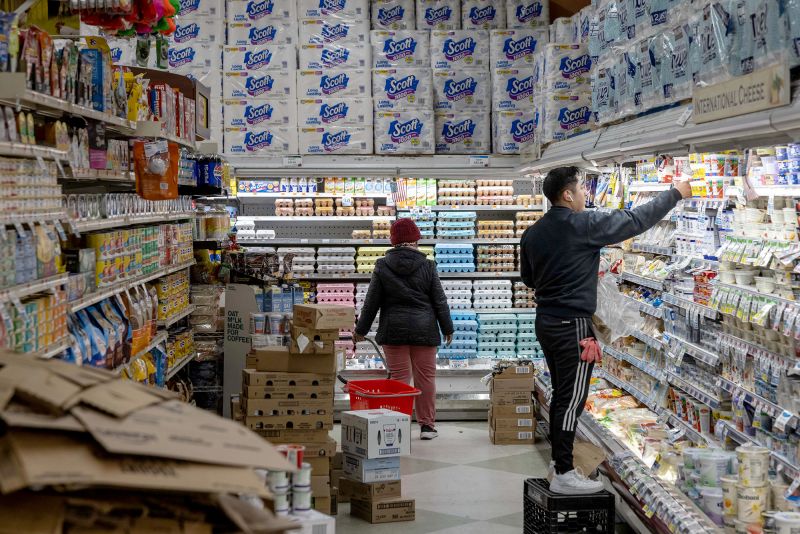
Is the US Economy Actually Slowing Down?
Concerns about the US economy have been amplified by a new CNN article discussing weaker-than-expected retail sales in February. Some believe this signals a broader economic slowdown, while others argue consumers are simply growing more cautious with spending. We analyze the facts to determine whether the economy is truly in decline.

Understanding the Retail Sales Context
Retail sales are a key indicator of consumer confidence and economic health. While a decline in spending can signal a weakening economy, other factors, such as inflation, trade policies, or temporary adjustments in consumer behavior, can influence spending patterns. Historically, fluctuations in retail sales have occurred without necessarily leading to a recession. Evaluating multiple economic indicators is essential before drawing conclusions.
Evaluating Key Claims in the Article
Claim #1: “Retail sales rose 0.2% in February, much lower than the expected 0.7% increase.”
This statement is accurate. The Commerce Department reported a 0.2% increase in retail sales, falling short of the predicted 0.7% rise. However, this figure alone does not confirm an economic decline, as consumer spending behavior can fluctuate due to temporary factors such as seasonal adjustments and inflation concerns.
Claim #2: “Weak consumer spending suggests the US economy may be slowing and heading into a recession.”
This claim lacks full context. While weaker retail sales can indicate economic cooling, broader indicators such as job growth, GDP, and manufacturing output must also be considered. For example, the Federal Reserve has not officially declared a recession, and other areas of consumer spending, including online and health-related goods, have shown growth.
Claim #3: “Trump’s tariffs are likely to raise prices for American consumers, impacting spending.”
There is substantial evidence that tariffs contribute to price increases. Historical data from previous tariff implementations show increased costs for goods, which can lead to changes in consumer behavior. However, whether this directly translates into a weakening economy remains debated among economists, as spending shifts rather than declines outright.

Final Assessment
The CNN article provides accurate data on retail sales but emphasizes negative trends while omitting broader economic factors. While weaker-than-expected sales raise concerns, they do not independently confirm an economic downturn. Other indicators, such as employment and GDP growth, provide a more comprehensive perspective on economic health. Readers should consider all relevant data before drawing conclusions about a potential recession.
Stay Ahead of Misinformation
Want to make informed decisions? Download the DBUNK app to fact-check news articles instantly and stay ahead of misinformation.


